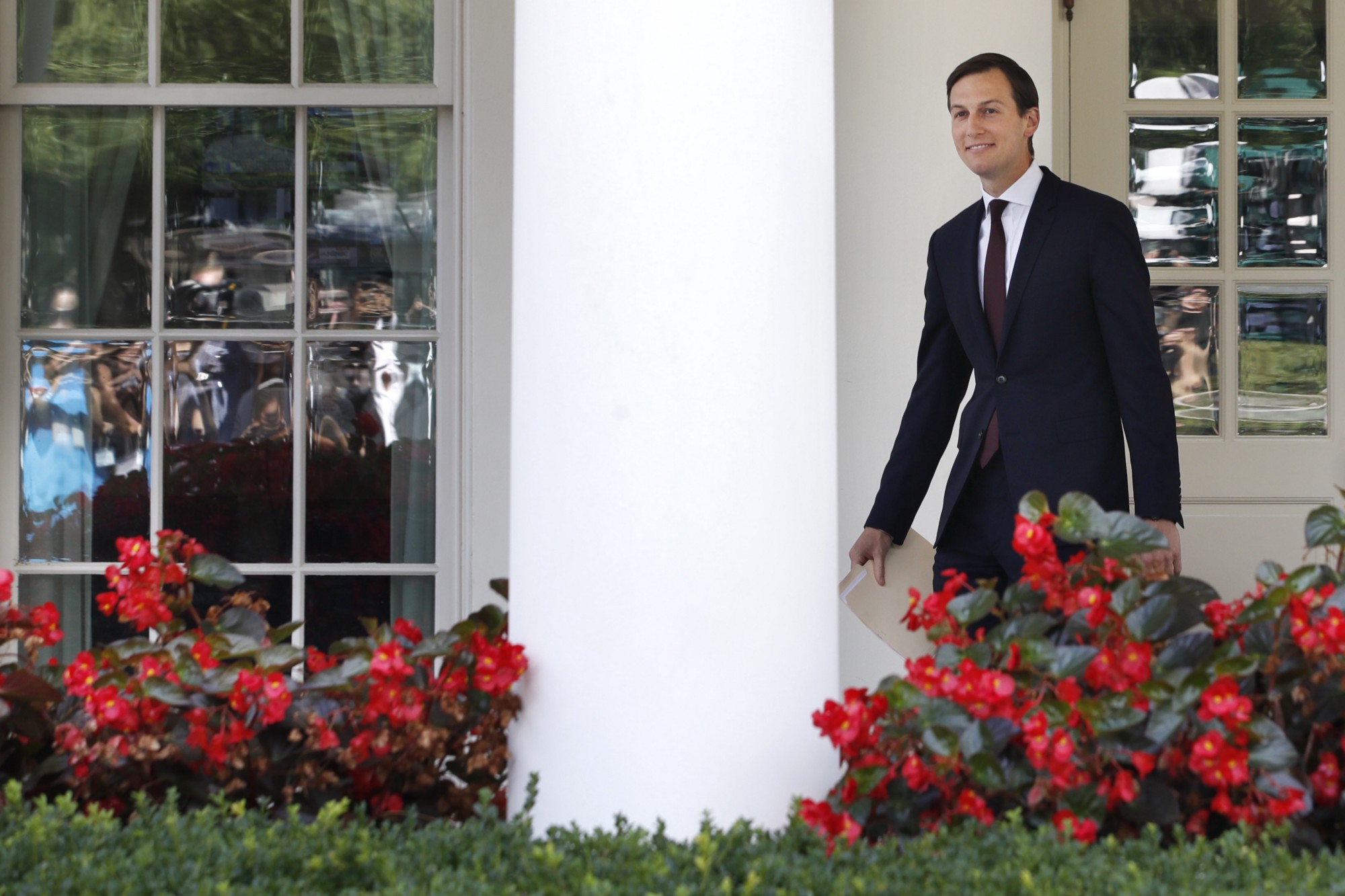Despite stern warnings not to tape the session, a leaked recording of White House adviser Jared Kushner’s off-the-record lecture to a group of congressional interns on Monday managed to find its way into the hands of Wired reporter Ashley Feinberg. The recording itself features Kushner discussing his approach to the Israeli-Palestinian conflict in a way that fails to inspire confidence.
Ahead of the lecture, Katie Patru, a House staffer who organized the event, briefed the interns and noted that recording and disseminating any audio or video from the session would be a major “breach of trust.”
“This town is full of leakers and everyone knows who they are, and no one trusts them,” Patru warned. “In this business your reputation is everything. I’ve been on the hill for 15 years. I’ve sat in countless meetings with members of Congress where important decisions were being made. During all those years in all those meetings, I never once leaked to a reporter.” Patru added that it would “bother [her] to [her] core” if she discovered anyone had been giving up information to the press.

At least one intern was not impressed. According to the recording leaked to Wired, Kushner, who has stumbled in previous visits with Middle East leaders, seized on the opportunity to vent his frustrations on the peace process. At one point, he bemoaned others’ attempts to give him a “history lesson” on the subject, which he claimed was useless.
“You know everyone finds an issue…‘You have to understand what they did then,’ and ‘You have to understand that they did this,’” he said. “But how does that help us get peace? Let’s not focus on that. We don’t want a history lesson. We’ve read enough books. Let’s focus on how do you come up with a conclusion to the situation.”
He added, “You have some people who don’t want to see and achieve an outcome of peace. And other people sometimes thrive in the chaos…and that’s not new to politics and its not new to that conflict. It’s just the way it is.”
Kushner comments further revealed his inexperience on the issue. During a meeting with Palestinian President Mahmoud Abbas in June, leaders complained that the president’s son-in-law — a strong supporter of Israel — and Mideast envoy Jason Greenblatt seemed more “like Netanyahu’s advisers and not like fair arbiters.”
“They started presenting Netanyahu’s issues and then we asked to hear from them clear stances regarding the core issues of the conflict,” a senior Palestinian official reportedly said, according to Haaretz. Officials later called the meeting a disappointment.
“So, what do we offer [this process] that’s unique? I don’t know… I’m sure everyone that’s tried this has been unique in some ways, but again we’re trying to follow very logically,” he said at one point, remarking ambiguously on the negotiations. “We’re thinking about what the right end state is. …And there may be no solution, but it’s one of the problem sets that the president asked us to focus on. So we’re going to focus on it and try to come to the right conclusion in the near future.”
Kushner’s confusion on the issue seems to mirror President Trump’s own shallow understanding of the situation. Back in May, while meeting with Abbas himself, Trump ham-handedly described the long conflict between Israel and Palestine “as not as difficult as people have thought over the years.”
“We want to create peace between Israel and the Palestinians,” he said, dodging any specifics. “We will get it done. We will be working so hard to get it done. I think there is a very good chance and I think we will.”

Those comments echoed similar refrains from the 2016 campaign trail; during an MSNBC town hall in February that year, then-candidate Trump told supporters that negotiating peace in the Middle East would be “probably the toughest agreement of any kind to make.”
When host Joe Scarborough pushed Trump to expand on his comment, Trump replied hazily, “You know, I don’t want to get into it, because…if I win, I don’t want to be in a position where I’m saying to you and the other side now says, ‘We don’t want Trump involved.’”
He added, “ Let me be sort of a neutral guy. A lot of people have gone down in flames trying to make that deal. So I don’t want to say whose fault is it. I don’t think it helps.”
Neither the White House nor spokespersons for the office of Member Services, Outreach, and Communications immediately responded to requests for comment.

